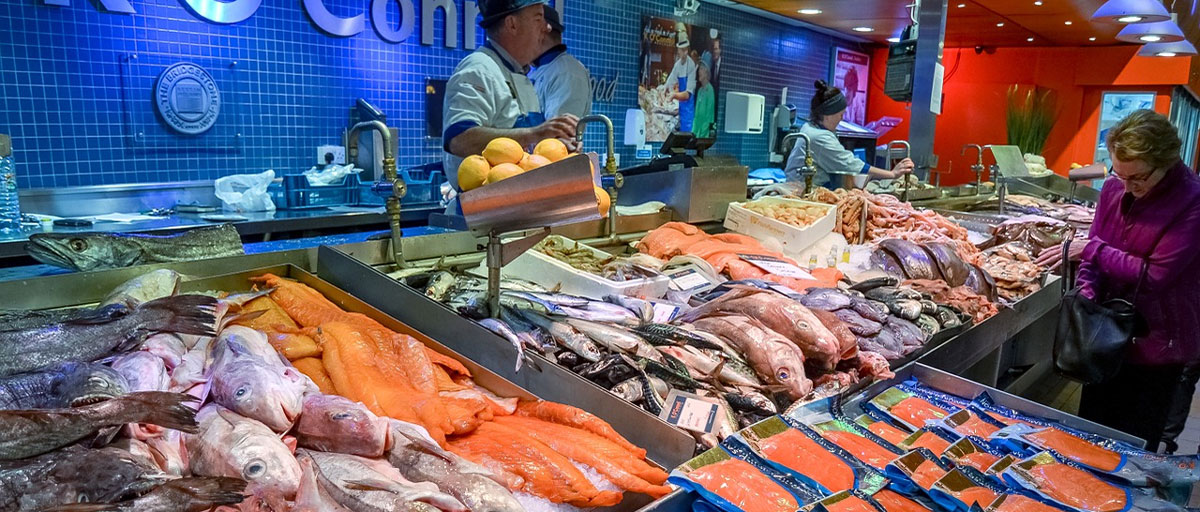FOOD LABELLING
Better labelling can help consumers buy more sustainable food
Amid a flurry of labels, researchers call for a single comprehensive, international system to help consumers make sustainable choices
- A comprehensive, international and science-based food labelling system can help promote diets that benefit human health and the environment
- This requires further developing and strengthening the way the combined environmental impact and nutritional quality of foods is assessed
- The review provides the foundation for a standardised international method to assess the sustainability of food products in a globalised food retail sector
PUT A LABEL ON IT: Sustainability labels offer consumers a variety of nutritional, environmental and ethical considerations while doing their groceries.
From providing calorie information or certifying organic, to promising sustainable fishing, there are hundreds in existence.
But as focus shifts towards more healthier and sustainable food products, there are calls for a single comprehensive, international and science-based labelling system.
A new review in Lancet Planetary Health led by centre PhD student Anne Charlotte Bunge lays the groundwork for such labelling. This could help consumers make choices that are good for their health and keep us within the boundaries of our planet.
Our study results underline the necessity for developing a standardised international method to assess the sustainability of food products in a globalised food retail sector.
Anne Charlotte Bunge, lead author
Inconsistent methods
The study, which was conducted during Bunge’s internship at the World Health Organisation and in collaboration with University of Oxford, reveals that many sustainable food profiling models that currently form the basis of sustainability labelling rely on inconsistent methods and are not easily replicable.
The authors found that few models exist that account for at least two different environmental impact factors, and even fewer incorporate nutritional values or other aspects of sustainability like the working conditions of the people involved in producing the food.
They also highlighted the need to develop national and international reference values for the classification of sustainable food.
Realising the EAT-Lancet diet
Suboptimal diets caused over 950,000 deaths in the European Union during 2017. In addition to this, the production and consumption of food products is responsible for 30% of total greenhouse gas emissions, is a major driver of biodiversity loss, and accounts for 70% of freshwater use.
In 2019 the EAT-Lancet Commission brought together 37 world-leading scientists, including several from the centre, to decipher what constitutes a diet that is a win-win for both health and the environment.
“Reaching the EAT-Lancet diet requires us to further develop and strengthen the way we assess the combined environmental impact and nutritional quality of foods,” say the authors.
“The insights from this research provides policymakers with the necessary information to further develop a labelling system that promotes sustainable public health nutrition, increases public awareness of environmental impacts, and supports food producers in reformulating their products to be more sustainable,” Bunge and her colleagues conclude.
Methodology
In order to identify existing tools that could be used to score food products according to their sustainability, the authors conducted a systematic review. Peer- reviewed and grey literature databases have been searched between May and June 2020 to identify sustainable food profiling models.
The authors explicitly searched for models that assess at least two environmental indicators to transition towards a comprehensive assessment of a food product´s sustainability. Different components, methods and ranking approaches, including threshold values to define a food product´s sustainability from a science-based perspective, have been extracted and discussed.
In order to support policy makers and researchers in choosing one of the identified Sustainable Food Profiling Models, a novel scoring system to assess the replicability of the models was developed.
Bunge, A.C., Wickramasinghe, K., Renzella, J., Clark, M., et.al. 2021. Sustainable food profiling models to inform the development of food labels that account for nutrition and the environment: a systematic review. Lancet Planetary Health, Vol. 5, Issue 11. DOI: https://doi.org/10.1016/S2542-5196(21)00231-X









